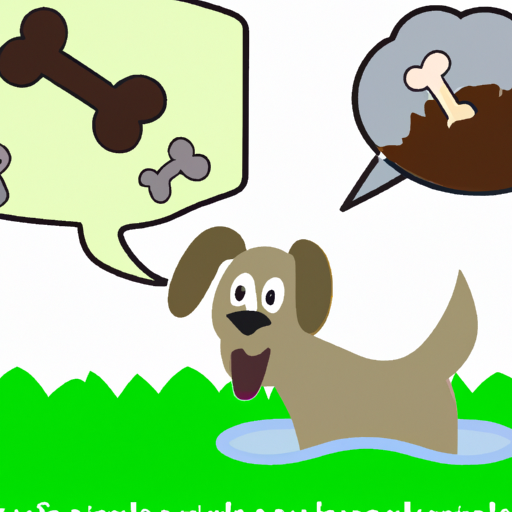Introduction
As a caregiver, you may have noticed your dog’s penchant for digging in the dirt. It’s a behavior that leaves you with a ruined garden and a puzzled expression. Why do they do it? Is there more to this seemingly nonsensical act? Let’s unravel the mystery together.
Understanding Your Dog’s Behavior
Before we dive into the specifics, it’s crucial to understand that digging is an instinctual behavior in dogs. It dates back to their wild ancestors who dug for survival. Here are the significant reasons why dogs continue this behavior:
1. Hunting for Prey
Dogs have a keen sense of smell. They can detect the presence of rodents or other critters in your garden. If your dog is digging in a specific area, they might be onto something.
2. Seeking Comfort
Dogs dig to make a comfortable resting place. The soil below the surface can be cooler during summer and warmer during winter. It’s their version of an all-weather bed!
3. Burying Valuables
Dogs bury their favorite toys, bones, or treats to save them for later. It’s an instinctive behavior that ensures they have a stash of goodies when food is scarce.
4. Escape Attempts
If your dog is digging near the fence, they might be trying to make an escape route. It could be a sign of boredom, or they might have spotted something interesting on the other side.
5. Attention Seeking
Sometimes, dogs dig to get attention, especially when they notice that it gets a reaction out of you. They might just be craving some interaction and play.
How to Address Your Dog’s Digging Habit
Addressing your dog’s digging habit is not about punishing them but understanding their needs and making necessary adjustments. Here are some strategies:
- Provide Interactive Toys: Keep your dog mentally stimulated with toys that require them to solve a puzzle to get a treat.
- Regular Exercise: A tired dog is a happy dog. Regular exercise can help reduce their excess energy and keep them calm.
- Create a Digging Zone: If your dog loves to dig, provide a specific area for them to do so. Bury some toys and let them have fun.
- Provide Shelter and Comfort: Ensure your dog has a comfortable resting place that suits the weather conditions.
- Address Separation Anxiety: If your dog is digging due to anxiety, consider seeking advice from a professional. They can provide strategies to help your dog feel more secure.
Understanding the Impact of Digging on Your Dog’s Health
While digging is a natural behavior, it can sometimes lead to health issues. Here’s a brief table outlining potential concerns:
| Health Concerns | Description |
|---|---|
| Skin Infections | Dirt can get trapped in your dog’s nails and cause infections. Regular nail trims and baths can help prevent this. |
| Parasites | Soil can host parasites like ticks and fleas. Be sure to have regular vet check-ups to keep these at bay. |
| Injuries | Sharp rocks or debris in the soil can cause injuries. Always supervise your dog when they’re digging. |
Frequently Asked Questions
1. How can I stop my dog from digging up my garden?
Create a designated area for your dog to dig in and divert their attention from the garden. You can also use deterrents like citrus peels or vinegar.
2. Is digging a sign of distress in dogs?
Not necessarily. Digging can be a sign of boredom, excitement, or a way to comfort themselves. However, excessive digging might indicate a problem.
3. Why does my dog dig and then roll in the dirt?
Dogs often roll in the dirt to mask their scent, another instinctual behavior. It can also be a way to scratch their backs or show excitement.
4. Can I train my dog to stop digging?
Yes, with patience and consistency. Reward your dog for good behavior and redirect their digging to a specific area.
In the end, it’s essential to remember that every dog is unique. Understanding your dog’s individual needs and behaviors can help you both lead a harmonious life. Don’t forget, a little dirt never hurt anyone, especially not your adventurous furry friend!



